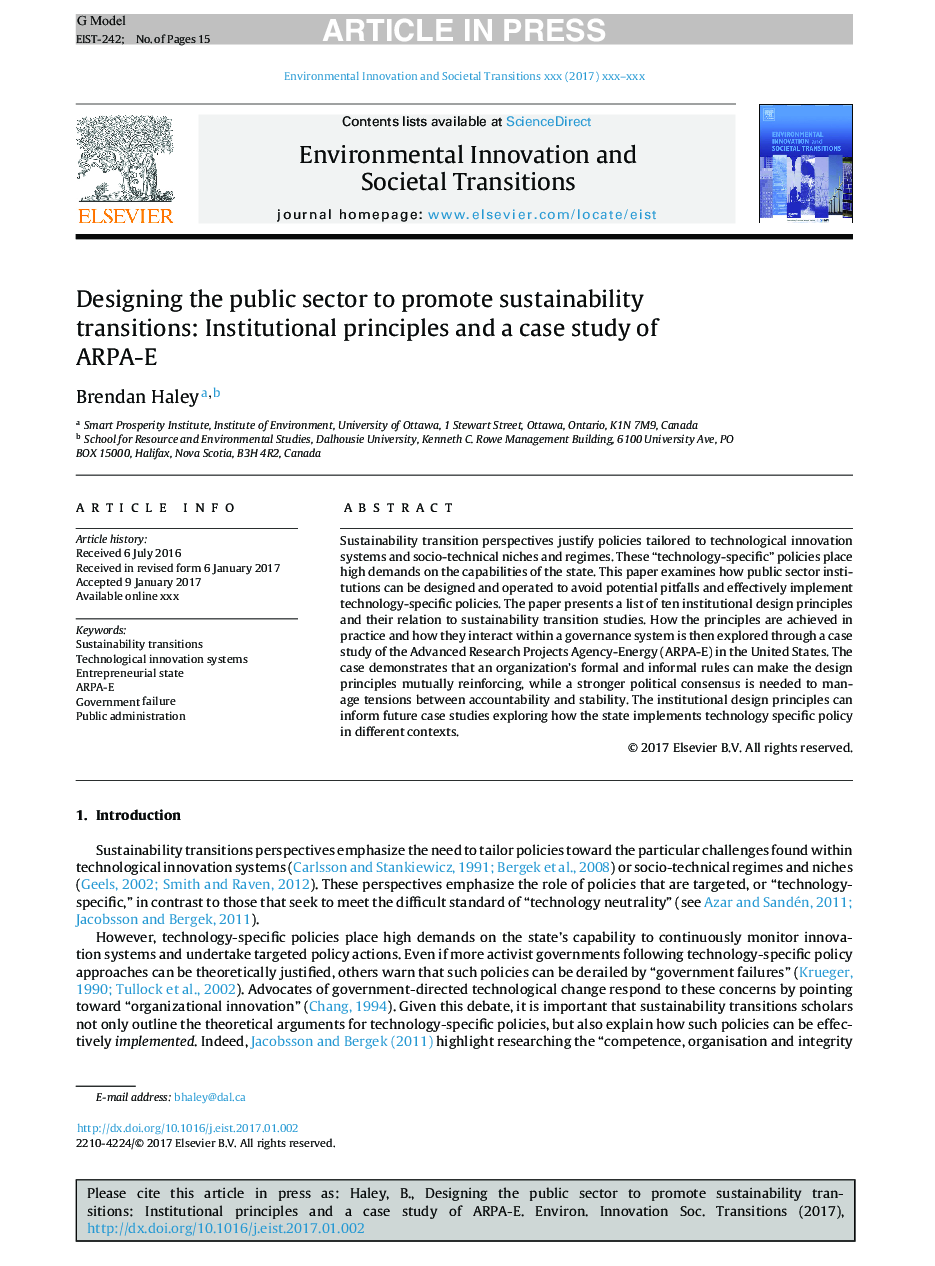| Article ID | Journal | Published Year | Pages | File Type |
|---|---|---|---|---|
| 6559179 | Environmental Innovation and Societal Transitions | 2017 | 15 Pages |
Abstract
Sustainability transition perspectives justify policies tailored to technological innovation systems and socio-technical niches and regimes. These “technology-specific” policies place high demands on the capabilities of the state. This paper examines how public sector institutions can be designed and operated to avoid potential pitfalls and effectively implement technology-specific policies. The paper presents a list of ten institutional design principles and their relation to sustainability transition studies. How the principles are achieved in practice and how they interact within a governance system is then explored through a case study of the Advanced Research Projects Agency-Energy (ARPA-E) in the United States. The case demonstrates that an organization's formal and informal rules can make the design principles mutually reinforcing, while a stronger political consensus is needed to manage tensions between accountability and stability. The institutional design principles can inform future case studies exploring how the state implements technology specific policy in different contexts.
Related Topics
Life Sciences
Environmental Science
Management, Monitoring, Policy and Law
Authors
Brendan Haley,
